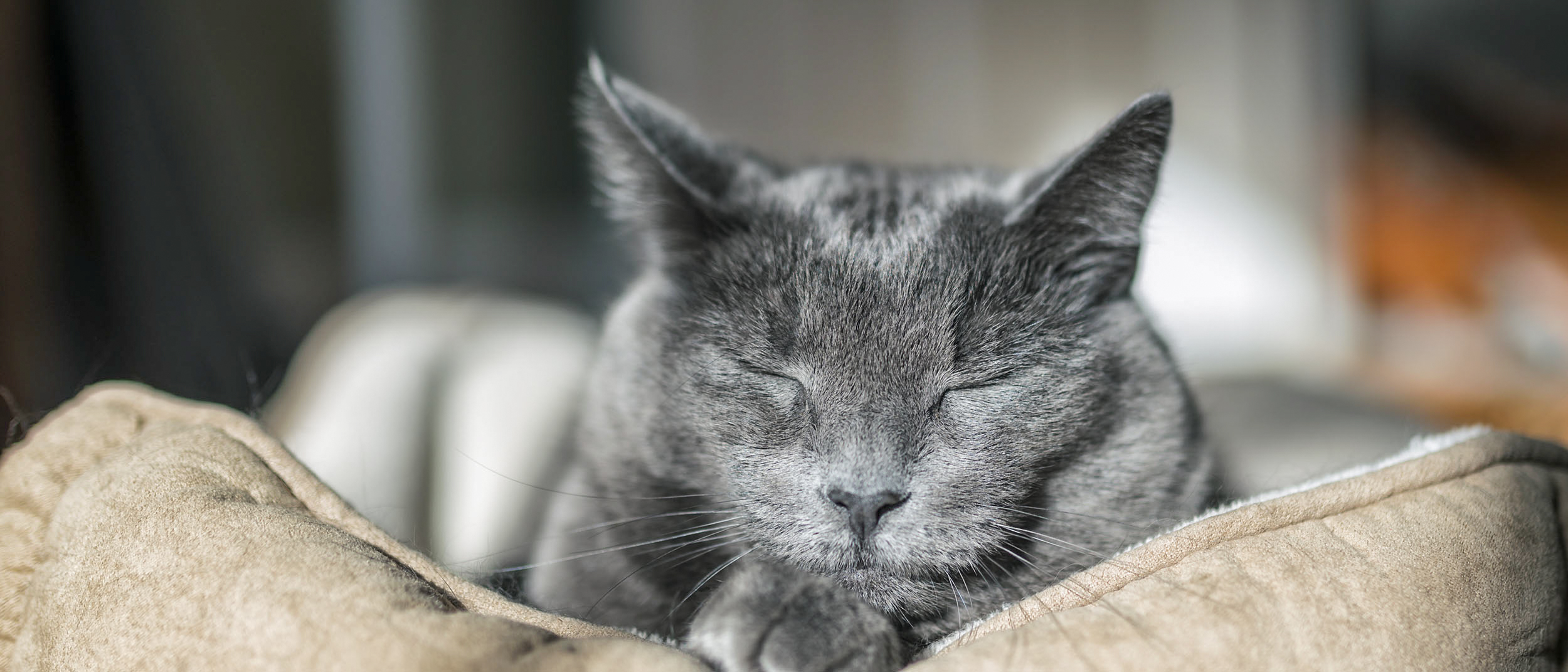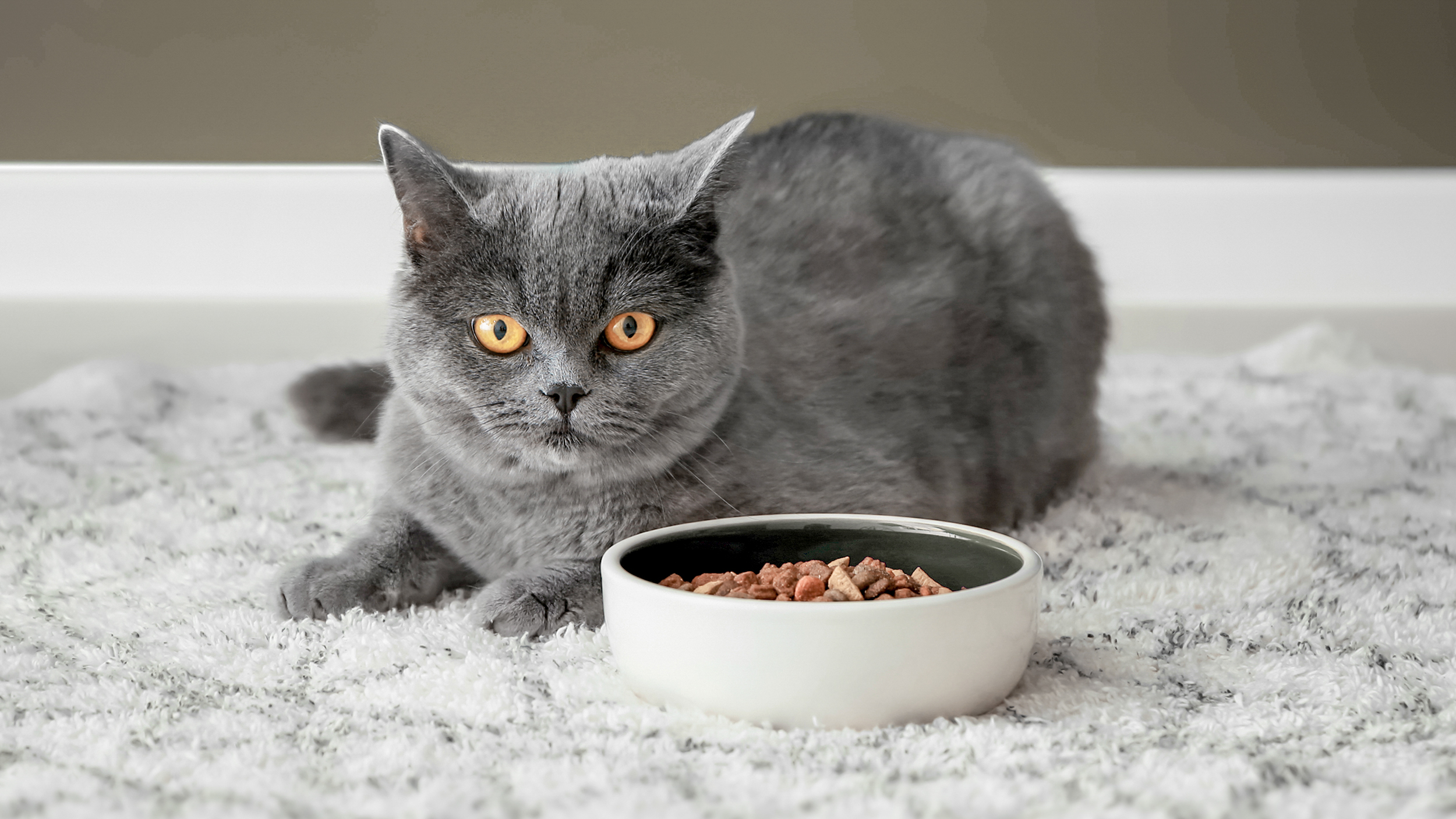Toxic foods to avoid

Your cat’s physiology means they are particularly sensitive to certain chemicals and compounds—they can’t always detoxify these properly in their body, and it can result in illness and even fatalities. Knowing which toxic foods and other substances you need to keep out of your cat's reach means you can better protect them from getting sick or distressed. This is not an all-inclusive list, so make sure that you keep anything you’re unsure about away from your cat, and don’t feed them anything in addition to their regular diet unless you have discussed it with your veterinarian.
Medicines and chemicals that are toxic for your cat
Your cat will react badly to specific compounds present in household products, including acetaminophen, aspirin and ibuprofen. Phenolic disinfectants—like those commonly used to clean rest rooms—and solvents like mineral spirit are also harmful. Permethrin, present in some insecticides, and ethylene glycol (antifreeze) are similarly toxic to cats. Make sure that you keep all these products away from your cat and in a place they can’t easily get to.
Plants that are toxic for your cat
Many times, your cat will avoid eating anything that could cause it to become ill; cats are very sensitive to bitter flavors, and most substances that are toxic to them taste bitter. However, lily and other plant toxicities are seen commonly in cats.
It’s a good idea to avoid growing certain plants in your yard or having them in your home that are toxic to cats, just in case. These include:
- Mistletoe, holly, ivy and poinsettia
- Cyclamen, wisteria and rhododendron
- Sweet peas, love apple and lilies

Toxic foods you should prevent your cat from eating
A number of foods you’re likely to have in your house are toxic to cats, with signs ranging from sickness to severe organ damage.
As with dogs, chocolate is toxic to cats due to the present of theobromine. The darker the chocolate, the more theobromine is present. Depending on the amount and type of chocolate consumed, your cat can suffer with an abnormal heart rhythm, tremors, seizure and even death.
Onions and garlic both cause problems in your cat’s body, as they can encourage red blood cells to break down and lead to anemia. They can also cause gastrointestinal upset, resulting in diarrhea. Grapes and raisins are similarly toxic, eventually causing kidney failure; early warning signs in your cat are repeated vomiting and hyperactivity.
Although protein is a crucial part of your cat’s diet, certain types of protein can be damaging to their health. Giving your cat raw eggs puts them at risk of food poisoning, but it also can interfere with their ability to absorb the B vitamin biotin due to the presence of a protein called avidin in the egg white. If your cat eats large quantities of liver, this can cause a vitamin A toxicity, which can affect their bones and lead to osteoporosis.
You should avoid giving your cat table scraps or leftovers from your meal; it encourages begging behavior, can contribute to weight gain, and also damage their digestive system. Fatty or fried foods can be too rich for your cat and can cause diarrhea. Alcohol and caffeine should not be given to your cat, as the effects a human feels from these substances are more severe in cats due to their small size and can cause serious damage.
Although the image of a cat drinking a saucer of milk is common, after weaning, your cat’s lactose intolerance increases and ingesting cow or goat's milk can lead to digestive upset and discomfort.
If you believe your cat has eaten something toxic, speak to your veterinarian immediately who will be able to advise you on the best course of action—and make sure that you take preventative measures by keeping toxic substances, foods or plants away from your pet.
Find a vet
If you have any concerns about your cat’s health, consult a vet for professional advice.
Like & share this page